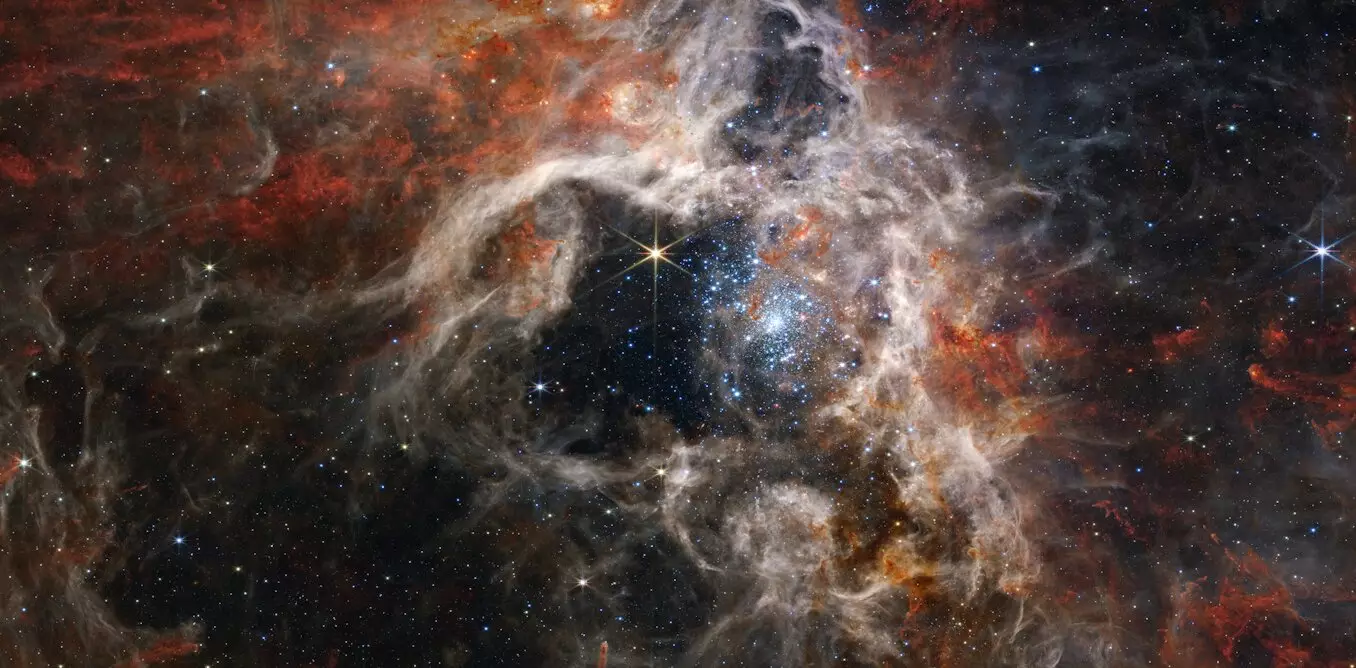The universe, which has been in existence for a staggering 13.7 billion years, is facing a precarious situation due to the instability of a fundamental particle known as the Higgs boson. This particle is responsible for the mass and interactions of all known particles, as it is associated with a field called the Higgs field. Much like a still water bath, the Higgs field permeates the entire universe, ensuring uniformity in particle masses and interactions across all cosmic regions. However, the Higgs field is not in its lowest energy state, making it susceptible to a dramatic change known as a phase transition. This transition could result in the creation of low-energy bubbles in space with altered physics, impacting the mass and interactions of particles.
Recent measurements from the Large Hadron Collider (LHC) at Cern hint at the possibility of such a phase transition occurring. If the Higgs field were to undergo a phase transition, the consequences would be profound, leading to significant changes in the laws of physics within these low-energy bubbles. Elements such as electrons, protons, and neutrons would undergo drastic alterations, rendering the current state of the universe unrecognizable. While this catastrophic event may not transpire for billions upon billions of years, the potential instability of the Higgs boson poses a looming threat to the existence of our universe.
One significant factor that could trigger the Higgs field to transition into a lower energy state is the presence of primordial black holes. These unique black holes, theorized to have emerged in the early universe from densely concentrated regions of spacetime, are much lighter than conventional black holes, potentially as light as a gram. The existence of primordial black holes is a key component in various cosmological models, particularly those related to inflation following the Big Bang.
However, the existence of primordial black holes comes with a caveat, as demonstrated by Stephen Hawking’s work on black hole evaporation. These light black holes emit radiation through their event horizon at a rapid pace, acting as heat sources in the universe. In the presence of the Higgs field, primordial black holes could contribute to energy fluctuations, potentially causing the field to transition and create bubbles with altered physics. Yet, despite the theoretical possibility of primordial black holes affecting the stability of the universe, empirical evidence suggests that such phenomena are highly improbable.
While cosmological scenarios proposing the existence of primordial black holes may present intriguing possibilities for understanding the evolution of the universe, the absence of concrete evidence raises doubts about their validity. The intricate relationship between the Higgs field, black holes, and the stability of the cosmos remains a topic of ongoing research and speculation. Should future discoveries unveil traces of primordial black holes in ancient radiation or gravitational waves, it could signify a paradigm shift in our understanding of the universe’s fundamental forces and particles.
In essence, the precarious balance between the stability of the Higgs field and external influences, such as primordial black holes, underscores the complexity of our universe. The ongoing exploration of particle physics and cosmology offers glimpses into the intricate inner workings of the cosmos, revealing the profound interconnectedness of its various components. As we continue to delve deeper into the mysteries of the universe, new discoveries and insights await, challenging our existing notions and expanding our understanding of the universe on both the smallest and grandest scales.


Leave a Reply